Digital Nomad Guide to Living in Hanoi
16 min readThis is my digital nomad guide to living in Hanoi. Vietnam’s capital city is a fantastic location for remote workers to consider calling their home base. It offers the perfect mix of dedicated coworking spaces, culture, and social fun; working remotely in Hanoi has many benefits and I’m happy to share them with you here. ... Read more
The post Digital Nomad Guide to Living in Hanoi appeared first on Goats On The Road.
This is my digital nomad guide to living in Hanoi. Vietnam’s capital city is a fantastic location for remote workers to consider calling their home base. It offers the perfect mix of dedicated coworking spaces, culture, and social fun; working remotely in Hanoi has many benefits and I’m happy to share them with you here.
Table of Contents
I recently spent a month as a Hanoi digital nomad and loved my time there. There’s a pulsating beat to this capital city that makes it an enthralling and motivating place to work from. There are plenty of patches of tranquility too, and in my digital nomad guide to Hanoi, I’ll outline it all.
About Hanoi
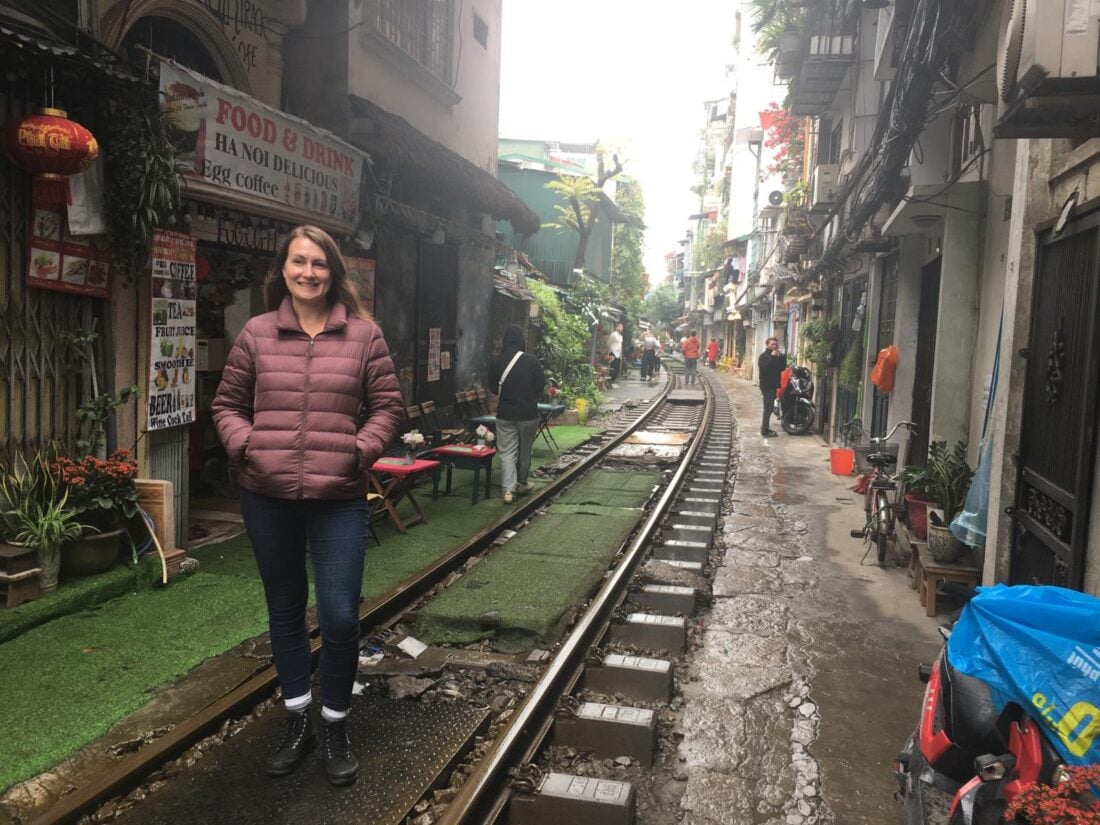
Hanoi is Vietnam’s capital and second most populous city behind Ho Chi Minh City.Situated in the north of the country it has a population of just under 8.5 million people.
A popular tourist destination, Hanoi welcomes millions of visitors each year. It’s often referred to as the ‘Paris of the East‘ due to the French influence found woven throughout the city. There are over a dozen lakes, many cute European-esque streets, and thousands of French colonial-era buildings.
Many significant cultural attractions add to Hanoi’s appeal as a must-visit destination. The Mausoleum of Ho Chi Minh, the Presidential Palace, and the Grand Opera House, as well as 9 excellent museums, are just a few examples of the many great ways to fill your free time.
Digital Nomad in Hanoi: Personal Experience
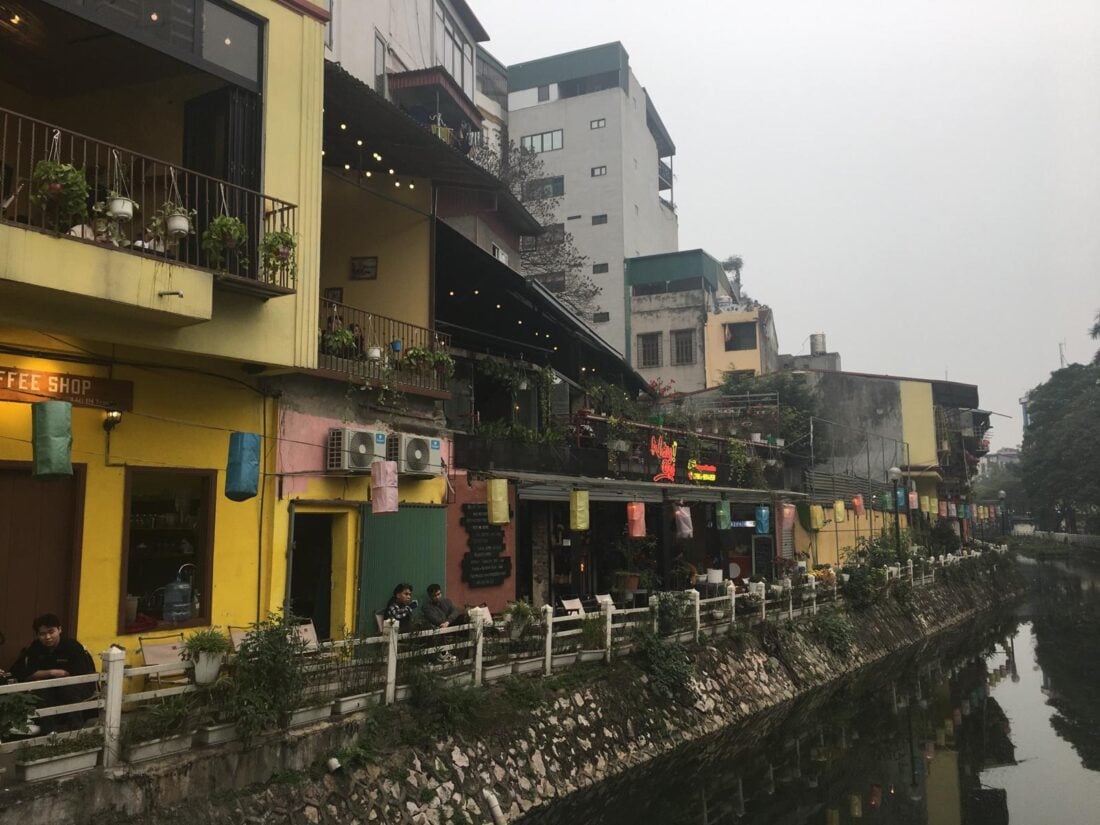
Living in Hanoi as a digital nomad for a month was a fun experience. It gave me plenty of time to explore the city, try out a few different coworking spots, and explore a little further afield.
The significant digital nomad scene in Hanoi lends itself to many great amenities that remote workers can take advantage of. Being a hub for tourism, English is quite widely understood if not always spoken, making for a straightforward day-to-day working life.
It’s refreshing to have access to WiFi pretty much everywhere and I love the mix of culture and the social environment that Hanoi offers. The general cost of living also means that a good work/ life balance is easier to attain than in most other places I’ve visited (more on this later).
Is Hanoi Safe?
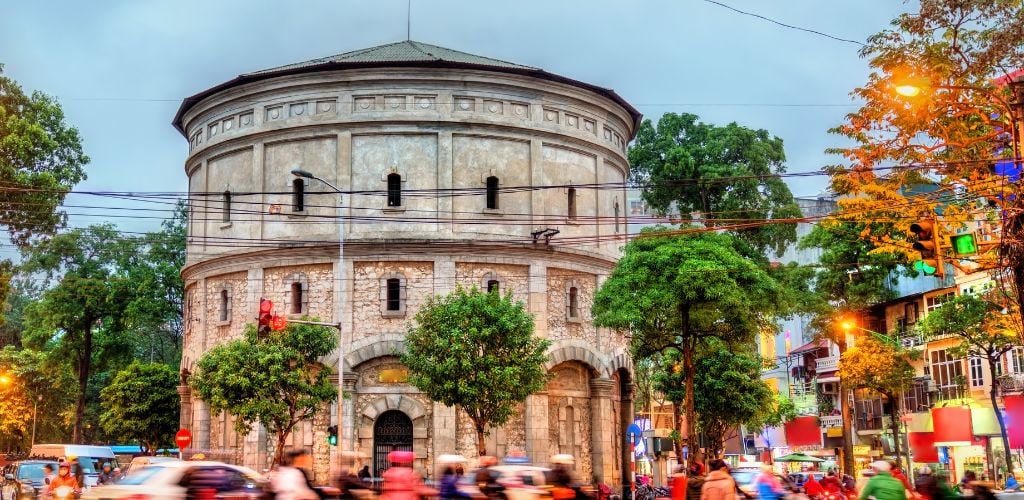
When considering a new destination to call home, safety is likely one of the first things to review. I always felt very safe in Hanoi, even at night and in some very chaotic and crowded areas. In general, it’s considered a safe place to visit with low crime rates across the board.
Like anywhere, especially in big cities, it’s advisable to take precautions with personal belongings and to always be aware of your surroundings. Applying basic common sense when out and about should mitigate any safety concerns.
Visitors should be aware that the roads in Hanoi can be pretty crazy. Traffic and highway regulations are seemingly left up to interpretation. Be very careful when crossing roads, even if the pedestrian green light is on – this counts for very little in Vietnam!
Best Areas to Live in Hanoi
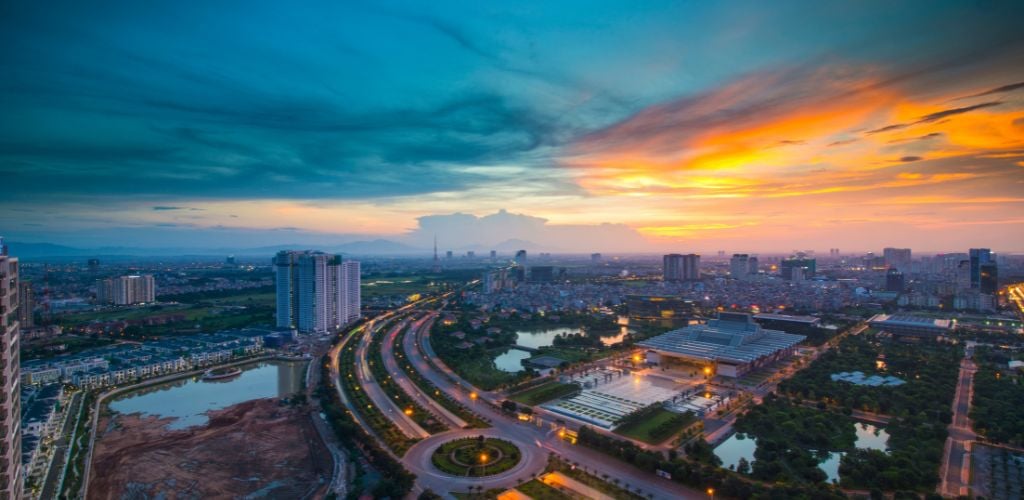
Hanoi is divided into 12 urban districts with the various neighborhoods offering different degrees of comfort, convenience, and coworking opportunities. Here are my top 5 areas to base yourself as a digital nomad living in Hanoi.
1. Hoan Kiem District
If you’re a digital nomad seeking the perfect blend of history, culture, and modern amenities in Hanoi, look no further than the Hoan Kiem District. The area also known by the moniker of ‘The Old Quarter’ has an enticing charm that attracts locals, tourists, and digital nomads alike.
The maze-like streets, centuries-old temples, and bustling markets mix seamlessly with a selection of modern facilities and places to base yourself for a day of remote work. The Hoan Kiem District is the beating heart of Hanoi and an exciting if somewhat chaotic place to live.
2. Oceanpark – Gia Lam

9 miles east of central Hanoi is a modern resort-style development that feels very far removed from the bustling streets of the Old Quarter. Ocean Park is a unique experience, to say the least. Highrise apartment blocks, 3-storey townhouses, endless restaurants, coffee shops, and mini-marts are all built around a huge man-made lake and beach.
The white sandy beach, the first I’ve ever seen with a turnstile entry, is quite spectacular and gives the whole area a tranquil vibe that you won’t find in central Hanoi. There are regular buses to and from the city or a taxi/Grab costs around $4-$5. Living here you’ll certainly experience a different side of Hanoi.
3. Ba Dinh
Moving back to a more central location, the Ba Dinh District is the place to see excellent examples of French colonial architecture and leafy tree-lined streets. Although it maintains a little of the city’s lively atmosphere, Ba Dinh offers a more residential and peaceful setting.
As well as some great coworking spots and cafes, Ba Dinh is home to the Ho Chi Minh Mausoleum, the Presidential Palace, and the Hanoi Botanical Gardens. With the huge Ho Tay Lake on the District’s northern edge, there is also plenty of natural beauty to enjoy in Ba Dinh.
4. Ho Tay (West Lake)
Ho Tay, also known as West Lake, is an area built around Hanoi’s largest lake. There are many excellent bars and restaurants lining the water’s edge that cater to Western tastes and offer a slice of ‘back home’ for visitors.
The scenic views of the water make it a very tranquil and calming environment compared to the often busy streets of Hanoi. Numerous outdoor gyms, playgrounds, and fishing decks are to be found on the shores of the lake. A popular ex-pat spot, Ho Tay is excellent for meeting like-minded travelers and fellow digital nomads.
5. Dong Da
The Dong Da District is considered the educational hub of Hanoi. It’s an area filled with youthful energy, mostly due to it being the home of numerous universities and educational institutions. This vibe is further enhanced by a healthy number of cafes, bookstores, and cultural sites.
Given its student nature, Dong Da offers some very affordable living options. Rent prices and the cost of living are generally lower than in central districts. It’s an area that would be very appealing to budget-conscious remote workers who seek a comfortable yet economical lifestyle.
How to Find Accommodation in Hanoi
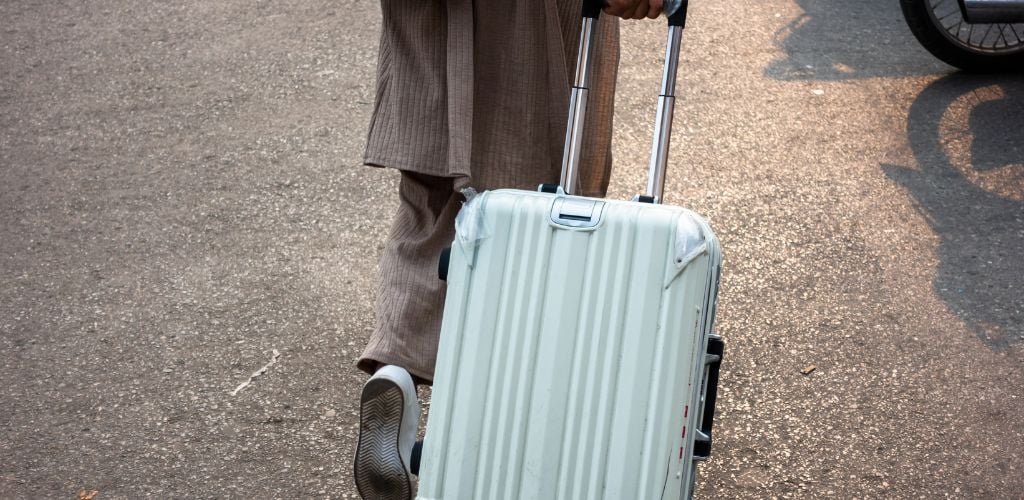
If you’re planning to spend a significant amount of time in Hanoi, it’s important to know where to look for accommodation and how to keep costs down. Here are a few of the best places to look, and a couple of my top tips for saving money.
1. House Sitting. Using sites like Trusted Housesitters has been a game changer in my life as a digital nomad. You can alleviate all accommodation costs by signing up with a house-sitting platform and securing some amazing sits in Hanoi. Check out my previous article Top 10 Must-Have Skills For Being a Successful House Sitter for more information.
2. Workaway. I’ve always had a soft spot for Workaway, it’s how my nomadic life started many years ago. If you can spare a few hours each day to teach some English, help out at a hostel, or lend a hand at a doggy daycare, for example, you may be able to land free accommodation and meals for your stay in Hanoi.
3. Booking.com. I love Booking.com simply because most of their listings come with free cancellation and can be booked without pre-payment. This is a vital resource when budgeting and planning long term. After 15 bookings you’ll achieve level 3 Genius Membership status which grants big discounts and numerous other perks.
4. Airbnb. Many of you will have used Airbnb before so this one should be of no surprise. But did you know many hosts offer huge discounts on month-long stays? I’ve seen discounts as high as 40-50%! Also, never be afraid to ask a host for some discount if you’re planning to stay a while, if the dates are free chances are they’ll be open to a deal.
Cost of Living in Hanoi
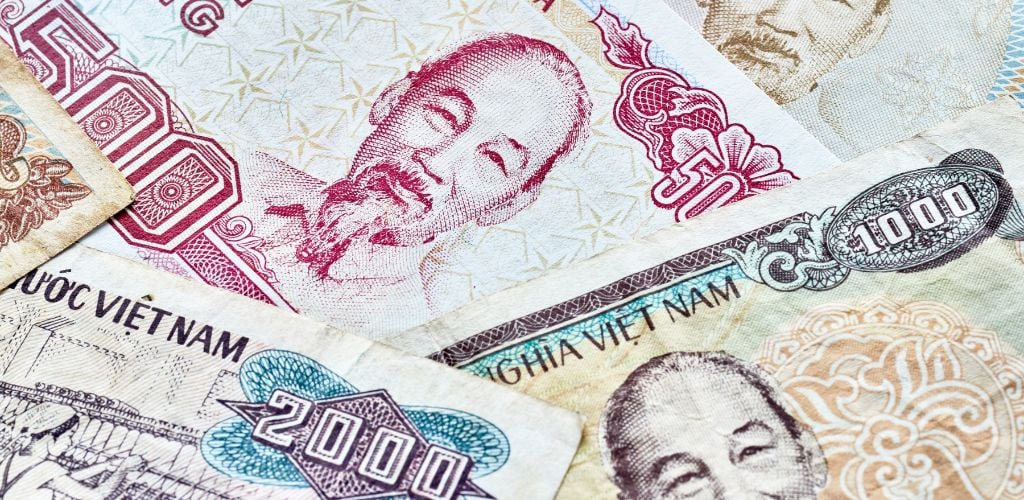
As big metropolitan cities go, many visitors will find the cost of living in Hanoi is very agreeable. Here’s a breakdown of some day-to-day financial considerations.
Restaurants and Groceries
Dining out and shopping for groceries is an area where visitors from places like the US, the UK, and Australia will see some major savings. There are plenty of street food and traditional Vietnamese options available costing as little as $2-$3pp. Even a 3-course meal in a high-end restaurant won’t break the bank at $10-$15pp.
I’ve always been in the habit of cooking meals at home, and it’s refreshing to see prices for things like bread, rice, chicken, eggs, and most fruits and vegetables at around 40-50% cheaper than back in the UK. Across the board, grocery prices are consistently and significantly cheaper in Hanoi.
Accommodation Costs
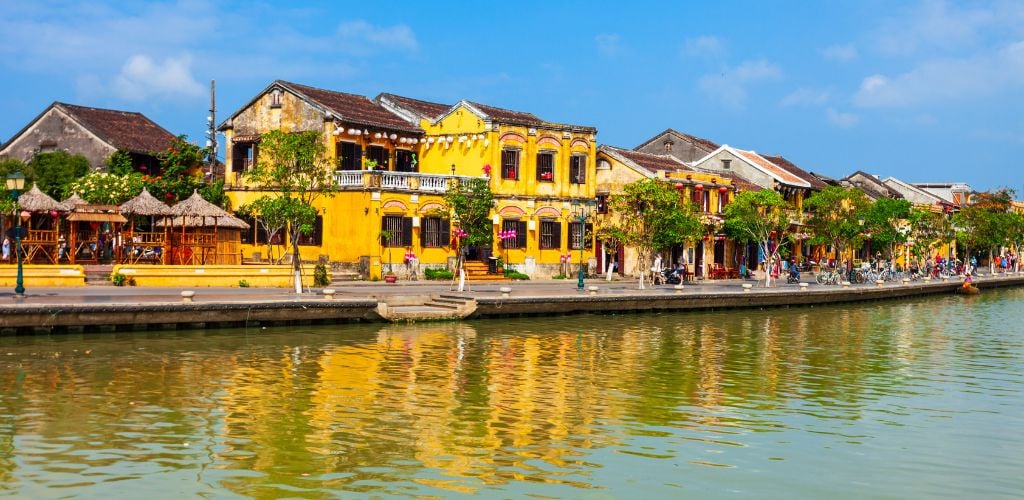
A major pull for Hanoi and Vietnam in general for visitors is the low cost of accommodation. Whether you’re planning a long Airbnb stay, or intend to hop around different hotel rooms, many great low-priced options maintain a level of quality and great customer service.
If you’re planning to stay in Hanoi on a long-term basis, consider speaking to a local letting agent. Central apartments can be secured in and around the city for anywhere between $215 and $350 per month. All utilities including WiFi come in under $100/month on average.
My month in Hanoi was booked using Airbnb and it cost $550, for a one-bedroom modern apartment, with a gym, access to the beach and a pool, and tons of local amenities. There are great savings to be had when you book for exactly 4 weeks or more.
Transportation Costs in Hanoi
Finding bus schedules or buses that stick to them is a task unto itself in Hanoi, but regular public transport options connecting the whole city do exist and can be found with tickets costing as little as $0.30.
Grab is readily available and is a useful app to download before your trip. The South Asian equivalent to Uber offers safe, reliable, and tracked rides with the price shown beforehand. Short rides cost me around $1 and even my 30-minute trek into the city center was under $6.
SIM Cards and Data

I would strongly advise picking up a Vietnamese SIM card whilst in Hanoi. Although WiFi is readily available in most places, it just makes things so much easier if you can simply connect via your data when out and about.
There are numerous big telecommunications companies in Vietnam. Viettel, Vinaphone, and Mobiphone are three of the biggest. All offer tourists SIMs with plenty of data – prices start at around $5-$6 a month.
Head to an official outlet, there are plenty of them in Hanoi and the staff are always pretty adept at setting up non-Vietnamese speaking visitors with SIM cards there and then. Make sure you bring some form of identification with you such as your passport.
Money Saving Tips for Hanoi

Here are a few of my top money-saving tips for Hanoi.
- Eat local. Traditional street food vendors offer delicious meals for as little as $2pp.
- Stay during the rainy season. Accommodation prices are known to be significantly lower during the rainy season (May to September). There’s a lot of rain but the average temperature remains very high.
- Stay a while. There are big discounts for month-long stays when booking with Airbnb. Don’t be afraid to ask for a discount too, most hosts will likely consider it for a guaranteed long-term booking,
- Shop local. Hanoi has many street markets that offer great deals on everything from clothing to groceries.
- Haggle. The Vietnamese famously love to haggle, especially in the marketplace, so don’t shy away from entering into a negotiation.
- Happy hour. As a major tourist hub with a lot of Western visitors, many great happy hours make the already pretty cheap drinks even cheaper.
- Enjoy free attractions. All of Hanoi’s lakes and natural beauty as well as the wonder of the Old Quarter are free to explore. Other attractions like the Ho Chi Min Mausoleum complex and the St. Joseph Cathedral are also free to enter.
- Grab Unlimited. New users of Grab are usually offered a free trial of the Unlimited membership which adds even more savings to rides and food deliveries.
Coworking Spaces in Hanoi and WiFi Speed

There are a few great coworking spaces for digital nomads to utilize while in Hanoi. I found the prices to be very affordable and the facilities were more than adequate for my needs.
Here are a few of my favorite places to consider basing yourself for a short (or long) spell in Hanoi:
1. eSpace Coworking
If you’re looking for a sleek and professional setup then head to eSpace. It has a modern vibe and a great ambiance that lends itself to a constructive workplace.
A variety of comfortable seating options and workspaces, excellent WiFi, and access to a pantry for free tea and coffee made eSpace one of my favorite working locations in Vietnam. Hot-desking prices start at just $80/month for 24/7 usage so it’s very affordable too.
2. Toon Trang Thi

If it’s more of a day-to-day working environment you are after, consider Toon Trang Thi. It’s a cool coworking environment built in an impressive and historic French villa. It’s also ideally located for many attractions in Hanoi.
A day pass will set you back around $6 or 3-day access is available for $9. Ever important coffee is included and welcoming staff are always on hand should you need any assistance. Overall, this is a very comfortable and affordable base for getting a day’s work done.
3. The Learning Hub
Another easy-to-use, affordable, and efficient coworking space is The Learning Hub. It’s not the biggest space, but has enough room for 25-30 people to work comfortably and I never saw it completely full. It’s a cute setup that feels quite homely and welcoming.
Prices start at around $5/day and The Learning Hub staff are open to negotiating prices for longer stays should you wish to extend your time there. It’s a great option for a casual morning of work with free tea, coffee, and water included.
Best Cafes to Work From in Hanoi

There’s a huge cafe culture scene in Hanoi, and coffee is a big deal all over Vietnam. Unsurprisingly, there are some great laptop-friendly cafes to situate yourself for remote work. Here are some of my top picks:
- Hidden Gem Cafe: This is one very cool cafe. Fantastic murals, unique artwork, and artifacts plus some interesting seating concepts should certainly get the creative juices flowing. There’s also great coffee and friendly staff.
- Blackbird Coffee: A more refined and polished working environment that attracts a regular number of remote workers. Blackbird Coffee is a very inviting but small cafe set over two floors that has a gentle flow of customers and a warm and welcoming vibe.
- Highlands @ Ocean Park: A wild card but it’s where I based myself numerous times. Around the beautiful man-made lake, tranquil turquoise lagoon, and white sandy beaches of Ocean Park are a couple of excellent Highlands Coffee shops. It only costs around $5 or $6 for a taxi from the city center and offers unique views and a calm setting in Hanoi.
Activities and Things To Do in Hanoi
I certainly didn’t become a digital nomad to just sit in front of a laptop all day. Hanoi is one of the great cities to explore and there are a ton of cool activities and things to do when the working day is through.
1. Visit Train Street

If you’ve ever Instagrammed Hanoi, chances are you’re aware of Train Street. It’s a crazy and unique experience that I highly recommend. Many small cafes and bars line a thin but very long street through which the huge Ho Chi Minh City-bound train runs every few hours.
The massive sleeper trains, which take over 33 hours to reach their destination pass by at full speed about a foot from where you sit. If you want to get the full experience I’d recommend tying it in with a food tour, click here for more information.
2. Cruise and Stay Overnight in Ha Long Bay

This trip exceeded my expectations. I had always wanted to visit iconic Ha Long Bay and I am so pleased I opted for an overnight stay rather than just a day trip. It’s about 3 hours from the Old Quarter and my trip included pick up and drop off in a comfortable coach.
The ship and cabin were luxurious and the amount of food and events included was impressive, to say the least. Cruising around Ha Long Bay at sunset with a glass of wine is an experience I will never forget. Click here to see the trip I booked.
3. Sightseeing City Tour

Hanoi is a big city and getting around to see all the sights can be a tricky task. So what better way to view it all than by Soviet-era army jeep? With my army helmet on, this was a fun and cool way to traverse the city and included all of the main attractions that I’d hoped to see.
Pick up and drop off were included, as were lunch and drinks at a rooftop bar. It was a half day of exploring with a very knowledgeable guide. It’s a great way to tick off everything there is to see in Hanoi. Click here to learn more.
4. Explore the Old Quarter
The Old Quarter covers quite a lot of square footage so put on some comfy shoes and get exploring. Enjoy being immersed in some of Hanoi’s oldest and most chaotic streets.
There are so many street food stalls, cool bars, cafes, restaurants, and markets to discover. Cut through the different alleys and don’t panic about getting a little lost, the streets always seem to resolve themselves! Pub Street is a great spot to pick a bar that looks good and people watch for hours.
5. Explore Tam Coc and the Hoa Lu & Mua Caves

Life in Hanoi can be a little crazy, but Vietnam has some of the most incredible and tranquil countryside in the world. Take a day trip from Hanoi to Tam Coc and discover another world of stunning waterways, ancient cities, unbelievable caves, traditional villages, and breathtaking scenery.
It’s a wonderful experience to sail and then cycle through some of the most beautiful places I have ever seen. It feels like a world away from the city center. There are a couple of excellent day trips from Hanoi but I highly recommend the one I booked – click here to learn more.
Weather in Hanoi
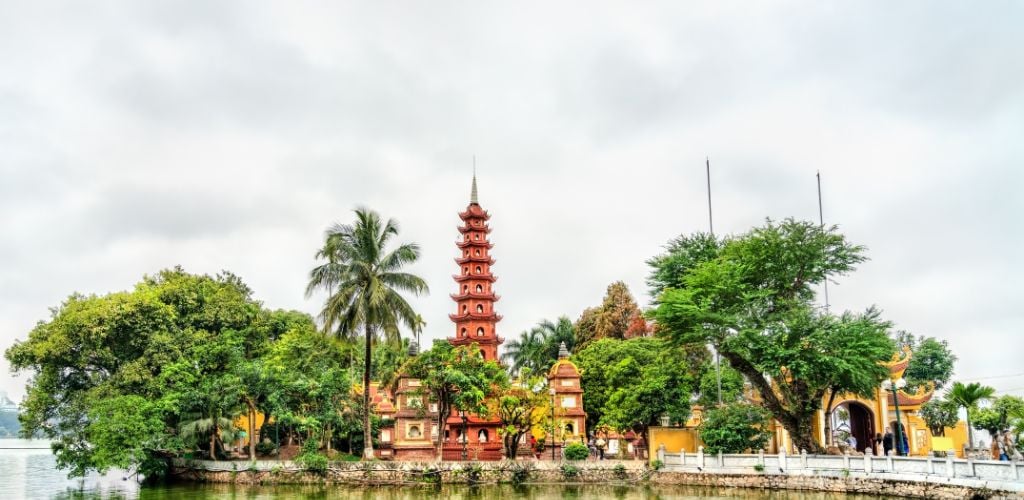
Hanoi experiences a distinct four-season climate, with hot and humid summers, cool and dry winters, and transitional periods of spring and autumn.
Summer, from May to September, has very high temperatures that can often be overbearing, and frequent heavy rainfall makes it a less favorable time to visit due to the heat and humidity. During the winter, from December to February, cooler temperatures and dry weather make Hanoi a much more comfortable place.
The best time to visit Hanoi is during the transitional seasons of spring (March to April) and autumn (October to November). During these periods, the weather is mild and pleasant, with clear skies and comfortable temperatures.
Pros and Cons of Living in Hanoi

There are plenty of positives about being a digital nomad in Hanoi but, as with anywhere in the world, there are also a few negatives to be aware of. Here are my top pros and cons to consider:
Pros of Living in Hanoi
- Pleasant climate. If you’re not a fan of the cold, Hanoi maintains pleasant average temperatures even during the winter.
- Cost of living. Most visitors to Hanoi will find the cost of living significantly lower than in their own countries.
- Coworking facilities. Hanoi is a hub for digital nomads and remote workers; there are many great coworking options to take advantage of.
- Cultural experiences. Lots of cultural attractions and spectacular day trips are available for visitors to easily experience.
- Culinary delights. From street food stalls selling traditional Vietnamese cuisine to high-end international restaurants, Hanoi has it all.
- Bustling environment. Hanoi is a huge metropolitan city, and as such, has a vibrant and electric atmosphere that many will find motivating and endearing.
- Great social scene. There are so many great bars and cafes across Hanoi, catering to locals and Westerners alike.
Cons of Living in Hanoi
- The rainy season. During the rainy season (May to Septemeber) heavy downpours and even typhoons can affect daily life in Hanoi. This time of year also brings very high temperatures and high humidity.
- Chaotic traffic. Somehow the roads just seem to work in Hanoi, but heavy traffic and often chaotic road systems are pretty commonplace.
- Communication barrier. Although more and more Vietnamese people speak and understand English there will often be communication issues to overcome when conversing with locals.
- Cultural differences. Visitors to Hanoi will experience cultural differences, such as using chopsticks for meals and attentive service with staff standing nearby as you decide what to eat, to name a couple.
Digital Nomad Visa for Hanoi
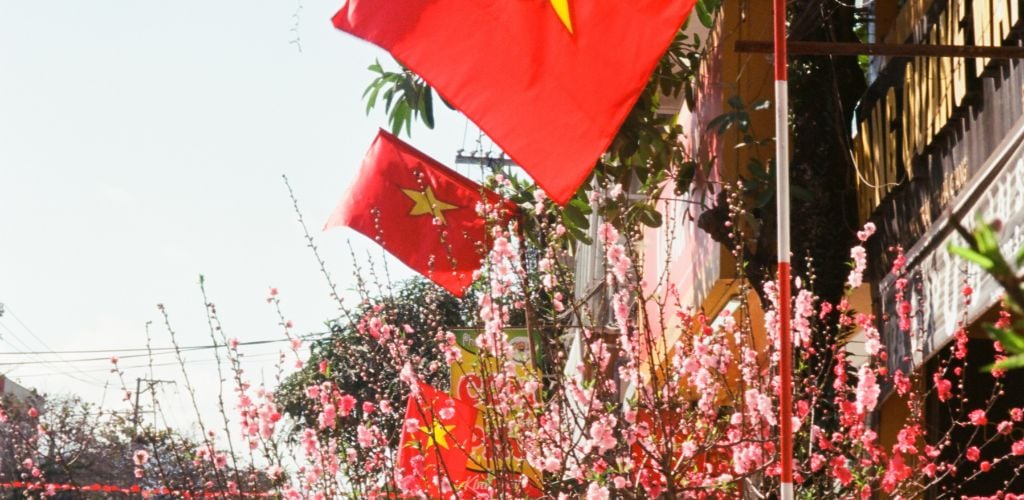
Vietnam doesn’t currently offer a dedicated digital nomad visa. Entry conditions and permitted lengths of stay depend on your nationality.
For instance, UK citizens enjoy visa-free entry to Vietnam for up to 45 days and can extend their stay for up to 90 days by applying online before arrival or at designated entry points. This policy applies to citizens of 12 other countries as well.
Meanwhile, citizens of the USA and Canada must obtain a tourist visa, which they can apply for online or at international entry points. Tourist visas typically range from 1 to 3 months and cost between $25 and $50, depending on the duration of stay and the number of entries required.
In Conclusion
Hanoi is without a doubt one of the world’s great cities. I quickly understood why so many visitors flock there every year. I loved my time working remotely from Vietnam’s capital and would return in a heartbeat.
With so many coworking options and facilities available to digital nomads, plus the added benefit of a great cultural and social scene, it ticks all the boxes as a remote working location. Enjoy your time in Hanoi!



